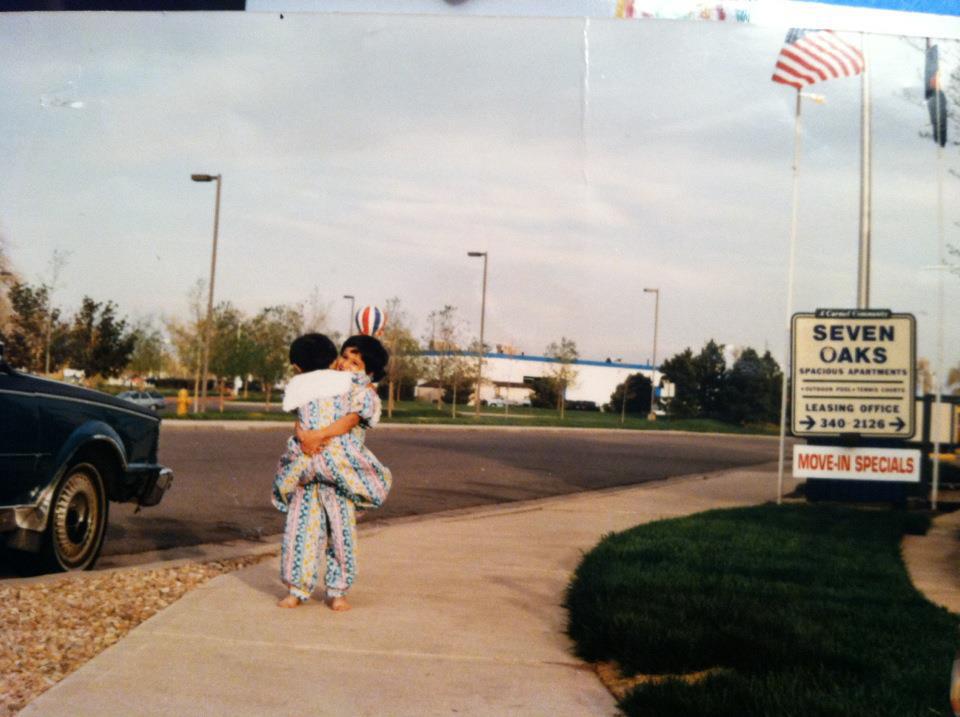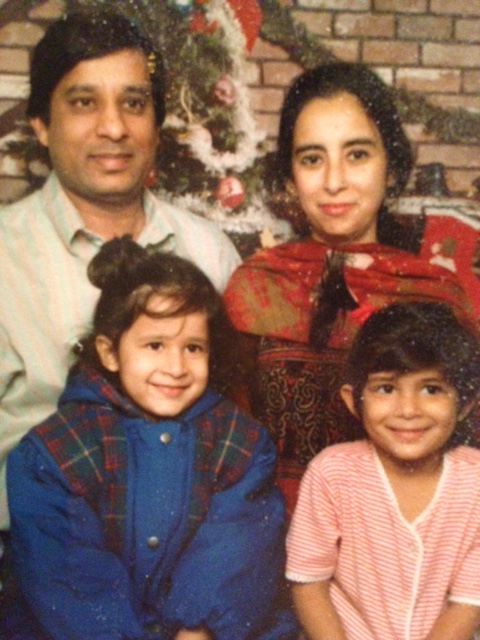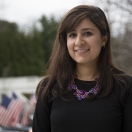
Mujhe Amreeka jana hai -- I want to go to America.
Those are the words I spoke to my father, pointing to a plane in the sky from our home in Karachi, Pakistan. I was only four years old at the time. Not quite aware of what it meant to leave everything we knew, my parents, younger sister, and I said goodbye to our extended family -- dozens of aunts, uncles, and cousins, whose love I only receive from afar now -- and left to chase the promise of America.

Arriving on business visitors visas, my family first came to Denver in 1996. A few months later, my father received a visa for skilled workers (H-1B) and we packed our bags once again to settle in a suburb of Detroit, Michigan. We knew no one there, but thankfully, that didn’t last long. My dad worked as an engineer at an automotive electronics supplier nearby and my mom stayed at home to take care of me and my younger sister. We lived in an apartment complex fifteen minutes away from the airport and befriended two or three neighboring Pakistani families. My sister and I spent our days at school and our evenings playing in the courtyard with the neighboring children. Our mothers would drink chai and watch over us. You could find our fathers nearby discussing world politics.
I didn’t know it at the time, but the community we built in that apartment block the first year we moved to Michigan became the cornerstone to my American identity. Every time I go home, I still find myself in the company of those same neighborhood kids. Even though we’ve all grown up to lead different lives, we still look back to the days when we were all nervous and excited to live in a country where we could be anything we wanted.

By the time we got our green card in 2002, we had already been woven into the fabric of America. Six years later, my parents finally took their oaths of citizenship, and I knew our family’s future was now inextricable from this nation. I watched closely as my mother pledged allegiance to this country. That day, we all felt a collective sense of pride, relief, security, and possibility. That day, we knew that the home we had built for ourselves here could never be taken away from us. That day, I started dreaming for my future -- one I hoped would include service in the government -- because I knew I had a stake in bettering this country and in carrying forth its ideals of opportunity and openness.
But, growing up here hasn’t always been easy. The older I got and the more complicated the world became, the more I struggled with my identity. There were times I felt like I had to compensate for being an immigrant by acting more “American.” In elementary school, I swapped out my mom’s chicken biryani for bologna sandwiches thinking it would make me fit in better. In middle school, I stopped correcting people who mispronounced my name. During times of national unrest, I carried around collective guilt. And the more I did it, the more I realized I didn’t have to do it.
America is not one creed or color, one dish or accent; it is a collection of people, three hundred million strong, each with their own tales of migration and adaptation. Being an American has never meant giving up who you are to become something else. It means using the sum of your parts to establish communities, build your livelihood, reimagine your identity, and grow your dreams. It means that even though there are imperfections in the immigration experience, they are always eclipsed by the overwhelming sense of possibility that makes our nation great.
It also means that an automotive engineer and his wife can proudly pledge their allegiance to this country, and that their daughter, who once looked up at planes in the sky in Karachi, can now look out onto the White House lawn and thank her parents for their pursuit of the American Dream.


